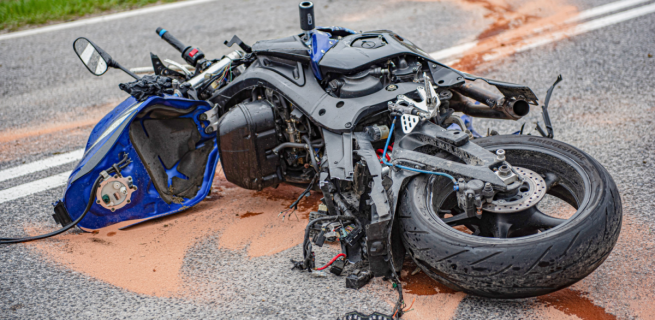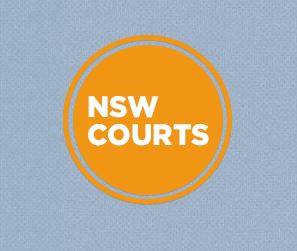By Paul Gregoire and Ugur Nedim
New South Wales police sergeant Matthew Kelly was driving a marked police car near Warnervale on the NSW Central Coast at around 2.20 pm on 16 April 2020, when he spotted a motorcycle ridden by Jack Roberts travelling along Sparks Road towards the entrance to the Pacific Motorway.
Kelly followed Roberts onto the motorway for a few kilometres and both vehicles then turned off at the Doyalson Link Road exit. And at this point, what had become a police pursuit saw the sergeant following the trail bike for a further six kilometres, before both turned into Blue Haven Way.
Shortly after, the pair drove onto the new strip of road, the 10 kilometre pursuit came to end, with the motorcycle coming into contact or collision with the front of the police vehicle. And Roberts died on impact.
The prosecution put it to the court, during the May-June 2023 hearings, that Kelly had failed to keep a safe distance away from Robert’s motorbike, and eyewitness statements and available dashcam footage revealed that on Blue Haven Way, his driving was negligent.
While the defence put it that Kelly was travelling under the speed limit at all times, and while he had intended to ram or nudge the bike, he never actually did, but rather Roberts overtook him on Blue Haven Way, collected vegetation on the side of the road and then veered in front of the cop car.
Guilty of backup offence
Kelly stood trial before a NSW District Court jury, over two days in 2023, facing one count of the crime of manslaughter, which is an offence under section 18 of the Crimes Act 1900 (NSW) that carries a maximum penalty of 25 years imprisonment.
Manslaughter differs from the other type of punishable homicide of murder, as the former involves an unintentional killing by unlawful and dangerous act.
The NSW police sergeant faced a second charge that applied if the elements of manslaughter were not met. And this consisted of one count of dangerous driving occasioning death, contrary to section 52A of the Crimes Act 1900, which carries up to 10 years in gaol.
The jury retired to consider its verdict just after 12 pm on 23 June 2023 and returned verdicts of not guilty relating to both charges at 3 pm the following day.
A third backup charge had been placed on a certificate, under the provisions of section 166 of the Criminal Procedure Act 1986 (NSW), which permitted for a further offence to be applied if the accussed was found not guilty of the main offences.
This third offence was one count of negligent driving occasioning death, contrary section 117(1)(a) of the Road Transport Act 2013 (NSW).
If the accused is convicted and it is their first major traffic offence in 5 years, this crime carries a maximum of 18 months prison, a fine of $3,300 and a 3 year automatic licence disqualification, but if it is a second or subsequent offence, it carries 2 years, a $5,500 fine and a 5 year disqualification.
District Court Judge Penelope Hock dealt with this backup offence without the jury, as per the stipulations of section 168 of the Criminal Procedure Act, which can be carried out based on the evidence an accused has given during a trial whilst defending against primary charges.
Her Honour found Kelly guilty of the negligent driving charge on 5 April 2023, and on the 23 June, Kelly was sentenced to a 12-month-long community correction order, which is a noncustodial penalty that’s served in the community.
No grounds made out
Kelly then appealed his sentence to the New South Wales Court of Criminal Appeal (NSWCCA) on 17 June 2024, based on four grounds. This was after an initial attempt at appeal in March was adjourned, as it was pointed out that the original three grounds were beyond the scope of permissibility.
The four grounds Kelly relied on this month consisted of first the decision not identifying whether all or just part of the pursuit involved negligent driving and secondly, that the court made an error in determining that he drove too close to the bike, as there was no evidence of this.
The third ground consisted of the prosecution raising the fact that Kelly was aware of the NSW police “Safe Driving Policy and pursuit protocols” was irrelevant, and lastly, that the sentencing judge had failed to provide adequate reasons as to why she considered the penalty was warranted.
In terms of the negligent driving charge being applied to the entire pursuit or just the last minutes of it, the three NSWCCA justices found this an absurd point to raise, as the event was a continuum, and the judge had underscored that at point of collision, the officer should have left greater distance.
The second ground, that no evidence existed that Kelly was driving too close to Roberts at point of collision, was too not made out, as there was ample evidence considered by the court, including eyewitness testimony, the footage of the incident, as well as reconstructions and Kelly’s testimony.
To raise the point of the officer’s prior knowledge of safe driving and police pursuit policies as irrelevant was also found not made out, as the accused had at times displayed his knowledge of these provisions and this was therefore relevant to the finding that he was driving too close.
And the final ground, which had involved the assertion that the sentencing judge had not provided adequate reasons for her coming to her decision was neither made out, as the NSWCCA justices simply outlined where her Honour had indeed provided thorough reasons.
Conviction stands
“Considered fairly and read as a whole, and considering the issues before the District Court, Judge Hock provided amply sufficient reasons for concluding that the appellant was guilty of the offence of negligent driving occasioning death,” the three-justice panel of the NSWCCA ruled.
“The law applied was explained, as were the issues, her Honour’s findings and the evidence upon which those findings were made,” their Honours underscored. “It was a transparent and clear exposition of the reasons for her Honour’s conclusion.”
And under their 17 June 2024 final findings, NSWCCA Justices Andrew Bolt, Peter Hamill and Dina Yehia, found that none of the points raised revealed any legal error had been made, and the appeal against the District Court decision was dismissed and the original outcome was confirmed.











